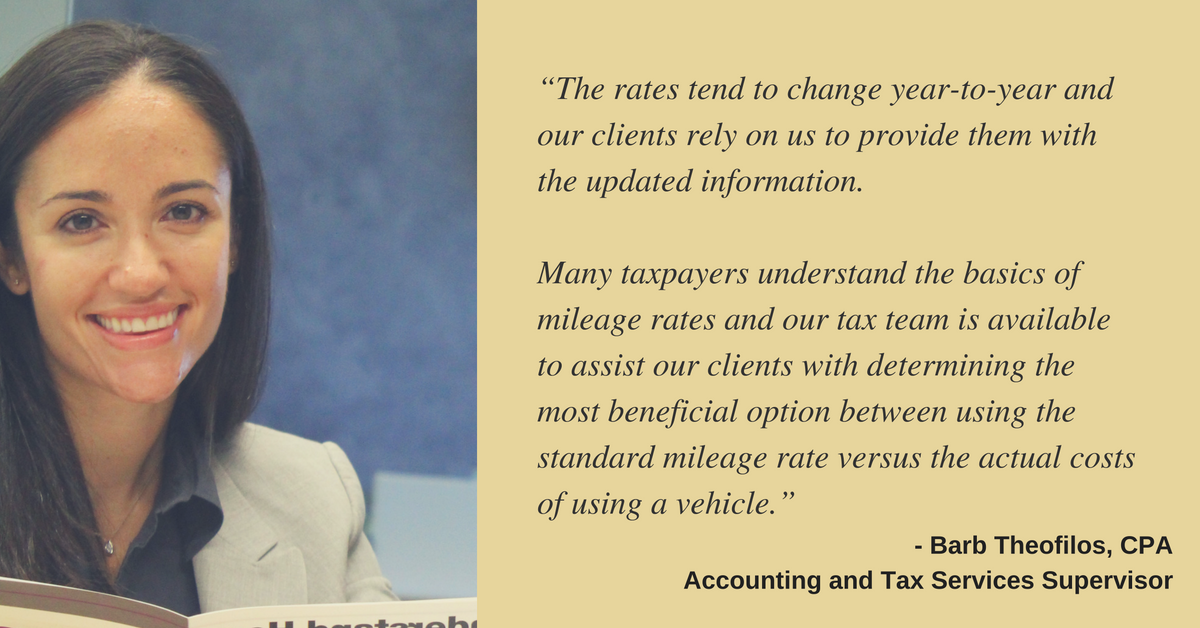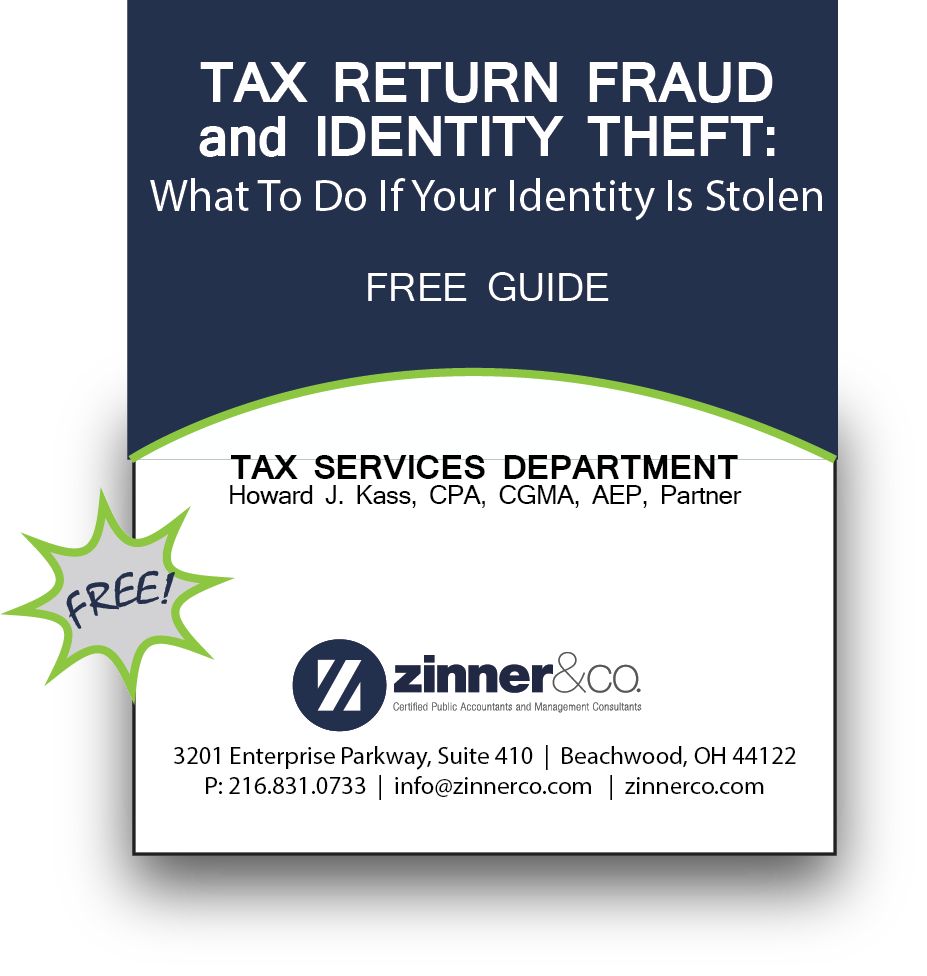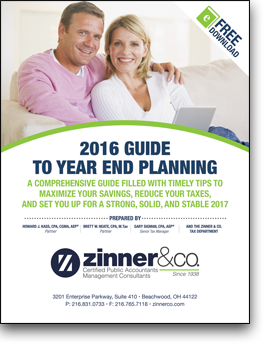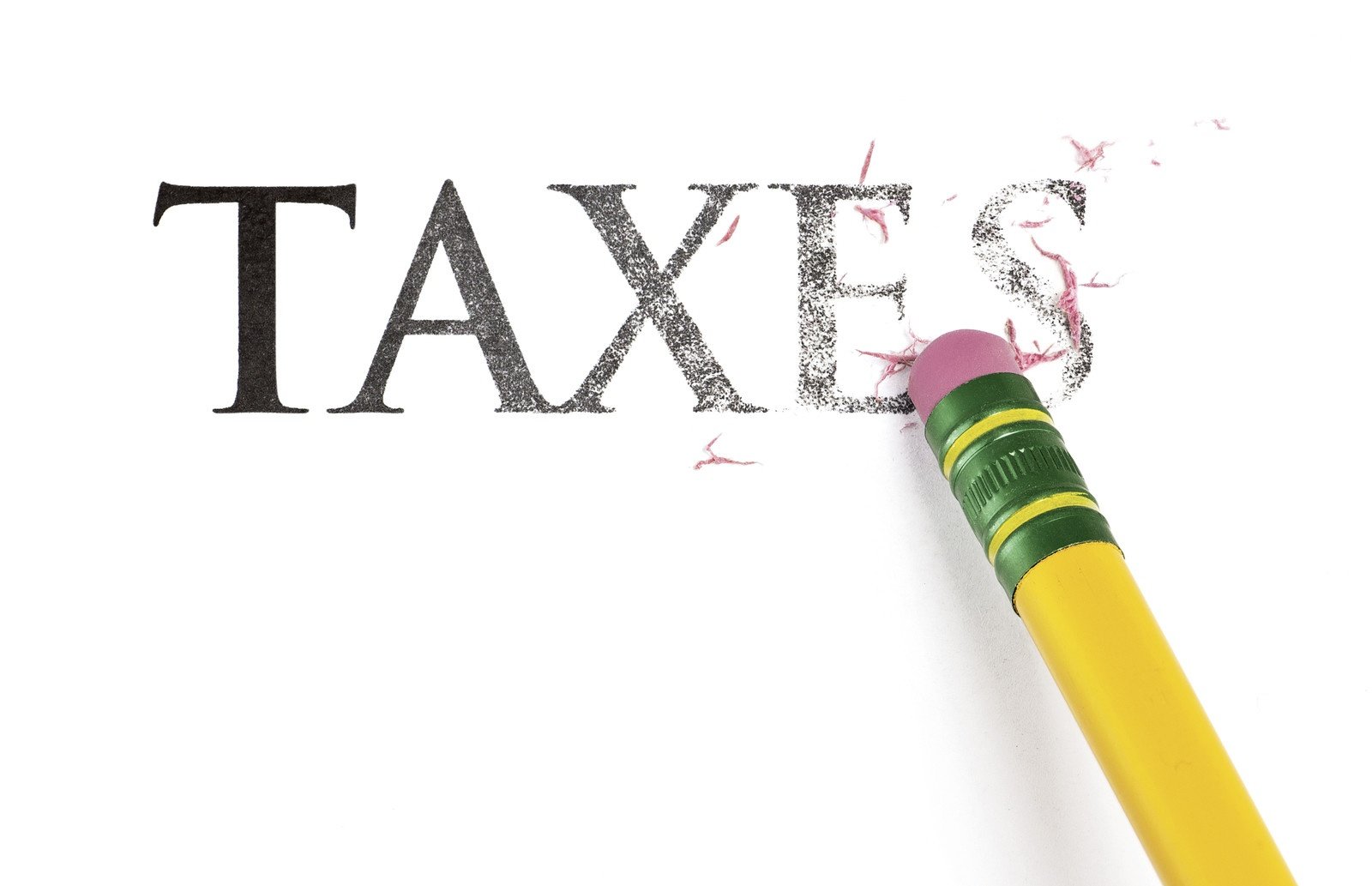The Internal Revenue Service has issued the 2017 optional standard mileage rates to calculate the deductible costs of operating an automobile for business, charitable, medical or moving purposes.
If you make a donation to a charity this year, you may be able to take a deduction for it on your tax return. Here are the top ten things the IRS wants every taxpayer to know before deducting charitable donations:
5 Things Every Small Business Owner Should Do Before Dec. 31.
Richard Huszai, CPA Taxes - Corporate & Business , Business - Management, Issues & Concerns , Richard Huszai, CPA , deductionsFor many small business owners, the fourth quarter signifies a final flurry of activity. Whether that is projecting inventory against sales or contemplating major purchases against anticipated revenue, for those who use QuickBooks software, it may seem as if the program takes care of the business loose ends on their behalf. As a result, business owners view the end-of-year task list as one less thing to think about in the middle of the night.
What to do if You Received a "Failure to File" Notice from the Ohio Department of Taxation
Zinner & Co. Tax Team Brett W. Neate , taxes , income tax , IRSDid you receive an Ohio Individual Income Tax Failure to File notice (ITDQ0009) from the Ohio Department of Taxation (ODT) advising you that they did not receive an Ohio Individual Income tax return?
ODT to require driver’s license, ID number on returns to fight fraud
Zinner & Co. Tax Team Taxes - IndividualFrom the Ohio Society of CPAs
Written on Dec 08, 2016 - OSCPA staff report
Good News for Many Plagued by Strict IRS Rules on Home Mortgage Interest Deduction
Zinner & Co. Tax DepartmentTraditionally, taxpayers have been able to deduct mortgage interest paid on mortgages of up to $1 million and Home Equity Lines of Credit of up to $100,000, for a total of $1.1 million in debt upon which mortgage interest paid can potentially be deductible.
These rules apply to both single and married filing joint taxpayers. Taxpayers married filing separate will see the qualifying debt limits reduced by half ($500,000 mortgage and $50,000 Home Equity Line of Credit).
There have been several situations in which taxpayers have struggled to find common ground with the IRS, including
Ohio Employers to see a FUTA Tax Reduction of $72 per Employee
Zinner & Co. Tax Team Taxes - Corporate & BusinessAs a result of the State of Ohio paying off its unemployment compensation debt to the federal government, Ohio employers will reap the benefit of lower Federal Unemployment Tax they pay this coming January. According to the Ohio Department of Job and Family Services, the state paid the remaining balance of nearly $218 million to satisfy its obligation to the federal government earlier this year.
Obama White-Collar Overtime Pay Mandate Blocked by Judge
Zinner & Co. Tax Team minimum wage , Taxes - Corporate & Business(Bloomberg) An Obama administration policy that would have given more white-collar workers overtime starting Dec. 1 was blocked nationwide by a federal judge in Texas. The decision Tuesday is a victory for 21 states and dozens of business groups that sued, complaining the new rule would increase government costs in their states by $115 million next year alone and would put private employers on the hook for millions of dollars more, possibly leading to layoffs.
If you’re a small business owner, time is running out to take advantage of some income tax reduction strategies before the end of the year. As the end of the year approaches, it is a good time to think of planning moves that will help lower your tax bill for this year. Factors that compound the planning challenge this year include overall economic uncertainty and Congress's customary failure to act on important tax breaks that will expire at the end of 2016.
About Us

Since 1938, Zinner has counseled individuals and businesses from start-up to succession. At Zinner, we strive to ensure we understand your business and recognize threats that could impact your financial situation.
Recent Blog Posts
Categories
- 1031 Exchange (2)
- 401k (2)
- 529 plan (4)
- ABLE Act (1)
- account systems (3)
- accounting (8)
- Affordable Care Act (8)
- alimony (2)
- American Rescue Plan Act (1)
- Ask the Expert (5)
- Audit and Assurance Department (13)
- audits (8)
- Bank Secrecy Act (1)
- banks (1)
- Barbara Theofilos (6)
- Beneficial Ownership Information (1)
- Bitcoin (1)
- block chain (2)
- BOI (3)
- Bookkeeping (1)
- Brett W. Neate (28)
- budgets (1)
- Bureau of Worker's Compensation (12)
- Business - Management, Issues & Concerns (51)
- business income deduction (3)
- business succession (7)
- business travel expense (3)
- business valuation (5)
- capital gains (2)
- careers (7)
- cash flow (2)
- Charitable Donations (2)
- Child Tax Credit (2)
- Chris Valponi (8)
- City of Cleveland (1)
- Cleveland COVID-19 Rapid Response Fund (1)
- Cleveland Rape Crisis Center (2)
- college (3)
- Community (24)
- Compliance (1)
- Coronavirus (24)
- Corporate Transparency Act (1)
- COVID-19 (30)
- Credit card fraud (5)
- credit reporting (2)
- cryptocurrency (2)
- CTA (2)
- cybersecurity (17)
- dead (1)
- DeAnna Alger (6)
- death (2)
- debt (4)
- deductions (14)
- Deferring Tax Payments (4)
- Department of Job and Family Services (2)
- depreciation (2)
- Digital Tax Payment (3)
- divorce (4)
- DOMA (3)
- Economic Impact Payments (2)
- Economic Injury Disaster Loan (4)
- education (8)
- EIDL (1)
- electronic filing (4)
- Electronic Tax Payments (3)
- Emergency Working Capital Program (1)
- employee benefit plan auditor (1)
- Employee Leave (3)
- Employee or Independent Contractor (6)
- Employee Retention Credit (3)
- employment (2)
- ERC (3)
- Eric James (8)
- Estates, Gifts & Trusts (48)
- expenses (5)
- Families First Coronavirus Response Act (2)
- FASB (1)
- FBAR (1)
- FDIC coverage (1)
- Federal Assistance (4)
- filing (3)
- financial planning (8)
- Financial Planning - College (9)
- financing (3)
- Firm news (119)
- first responders (1)
- FMLA (1)
- foreign assets (3)
- fraud (38)
- FSA (1)
- fundraising (9)
- Gabe Adler (1)
- gift tax (5)
- HDHP (2)
- health care (3)
- home (2)
- home office (1)
- Howard Kass (2)
- HRA (1)
- HSA (5)
- identity theft (34)
- income (1)
- income tax (58)
- independent contractor (1)
- Inflation (1)
- Insurance (7)
- internal control (4)
- international (2)
- Intuit (1)
- investments (4)
- IRS (91)
- jobs (5)
- John Husted (1)
- K-1 (1)
- Laura Haines (3)
- Layoff (2)
- Layoffs (1)
- leadership (3)
- lease accounting standards (1)
- life insurance (1)
- LLC (3)
- Loans (2)
- longevity income annuities (1)
- Lorenzo's Dog Training (1)
- Magic of Lights (1)
- management advisory (3)
- manufacturing (2)
- Matt Szydlowski (3)
- medical (7)
- Medicare (2)
- mergers and acquisitions (1)
- Mike DeWine (2)
- Millennial Concepts (2)
- minimum wage (1)
- NAIOP (1)
- National Defense Act (1)
- non-profit reporting (10)
- non-profits (38)
- not-for-profit (26)
- OATC (1)
- OBBB (3)
- ODJFS (1)
- office (1)
- ohio (13)
- Ohio Accounting Talent Coalition (1)
- Ohio business owners (18)
- Ohio Department of Jobs and Family Services (4)
- Ohio Department of Taxation (7)
- Ohio Incumbent Workforce Training Voucher Program (1)
- Ohio Society of Certified Public Accountants (1)
- One Big Beautiful Bill (10)
- Online Tax Payment (4)
- Operations (2)
- OPERS (1)
- OSCPA (1)
- Overtime (2)
- owners of foreign entities (1)
- partnerships (5)
- passwords (1)
- Paycheck Protection Program (9)
- payroll (8)
- penalties (3)
- pension (2)
- personal finance (2)
- planning (4)
- ppp (7)
- Productivity (5)
- Qualified Business Income (1)
- quickbooks (10)
- real estate (14)
- record retention (2)
- records (2)
- Reporting (1)
- Republican National Convention (1)
- Retirement Planning & IRAs (54)
- Richard Huszai, CPA (5)
- RITA (1)
- Robin Baum (6)
- RRF (1)
- S Corporation (1)
- SALT (8)
- SBA (8)
- scams (14)
- SECURE 2.0 Act (1)
- security (6)
- SharedWorks (1)
- Shutdown (3)
- Silver Linings (9)
- simplified employee pension (1)
- Small Business (5)
- SMB (12)
- Social Media (1)
- social security (4)
- Speaker Series (2)
- spouse (1)
- start ups (8)
- Stay at Home Order (3)
- Steven Mnuchin (1)
- Sue Krantz (6)
- SVOG (1)
- tangible property (1)
- tax (27)
- tax avoidance (12)
- Tax Credit (7)
- Tax Cuts and Jobs Act of 2017 (31)
- Tax Exempt (1)
- Tax Holiday (1)
- Tax Interns (2)
- tax services (28)
- taxes (45)
- Taxes - Corporate & Business (107)
- Taxes - Individual (125)
- Taxes - Planning, Rules and Returns (198)
- TechCred (1)
- technology (8)
- The CARES Act (6)
- The SOURCE (1)
- tiag (3)
- transaction advisory (2)
- Treasury Department (5)
- Trump Account (1)
- tuition (3)
- U.S. Department of the Treasury (1)
- U.S. Small Business Administration (6)
- Unclaimed Funds (1)
- Unemployment Benefits (4)
- Unemployment Insurance (1)
- withdrawls (2)
- withholding (6)
- Workers Comp Billing Changes (1)
- Zinner & Co. (35)
- Zinner News (32)












